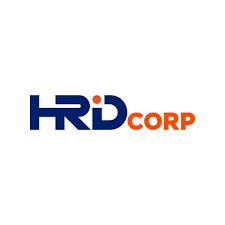Safety, environment issues still top concerns for Shell
Borneo Post Online, 18 March 2013
by By Ronnie Teo

DEVELOPING THE FUTURE: Photo shows one of Shell Shipping’s vessels. Henderson (inset) says Shell is indeed making strides in the fields of environment and efficiency as it continues to develop technology leading towards an environmentally friendly industry.
QATAR: Industry safety and environmental issues are perhaps the two biggest concerns for any shipping player, including Shell International Trading and Shipping Company (Shell Shipping).
According to the group’s vice president, Dr Grahaeme Henderson, as the group mostly deals with the transport of liquefied natural gas (LNG), this made them a major target for pirates during transportation.
“On some shipping routes, our seafarers also face the issue of piracy. Although piracy incident rates have reduced dramatically in the Arabian Sea, there is no room for complacency,” he stressed to the media in a group briefing here recently.
“Shell has taken an industry leadership position on piracy. I chair the Chamber of Shipping Security and Defence Committee and regularly work with industry colleagues.
“With Shell’s leadership, we have brought together other key global industry groups with BP, Maersk, Stena and the Japanese shipping companies NYK, MOL and “K” Line, to tackle the root causes of piracy,” he explained.
“Our joint collaboration project through the United Nations Development Programme will support job creation and capacity building projects by providing alternative livelihoods to youths in Somalia.” Henderson went on to note that piracy remained a concern elsewhere in the world, particularly along the west coast of Africa.
Meanwhile, Henderson also touched on the topic of oil spill preparedness – another major concern of any LNG shipping.
“We are operating on the open seas and we need to ensure we do safely, not just for our seafarers, but also for the environment through which we travel,” he said.
“Thus, we have established a Shell Oil Spill Expertise Centre as part of our Global Centre of Excellence.
“This covers the mitigation and control of pollution risk from oil and chemicals, and is responsible for the management of the Global Response Support Network of skilled and trained professionals.
“The Oil Spill Expertise Centre offers advice and expertise to Shell businesses in developing oil spill response plans and procedures.
“It manages oil spill preparedness exercises, and disseminates best practice and learnings worldwide.” Turning over to environment and efficiency, Shell was indeed making strides in this arena as it continued to develop technology leading towards an environmentally friendly industry.
“The environment is an important topic for me and the people I work with. I am very passionate about the opportunities that can be unlocked using technology in this space,” he enthused.
“I believe that technology holds the key to a safer, more environmentally friendly and efficient shipping industry.
“For example, we are at the forefront of developing LNG as a propulsion fuel for floating assets, helping to comply with new environmental regulations.
“With reduced emissions of sulphur oxide and the potential to reduce nitrogen oxide emissions significantly, LNG can help shipping operators meet stricter emissions standards,” Henderson explained.
Also, Shell recently acquired Gasnor a market leader in supplying LNG to industrial and marine customers, he added.
“In September, Shell signed a contract for the charter of two new build LNG powered tank barges that will operate on the Rhine from 2013.
“This is not only a first for Shell but a first for the inland marine industry.
“We are also doing a lot of work in fuel efficiency of our vessels and introducing modern high technology solutions, including streamlined hulls and fuel efficient engines,” he concluded.















